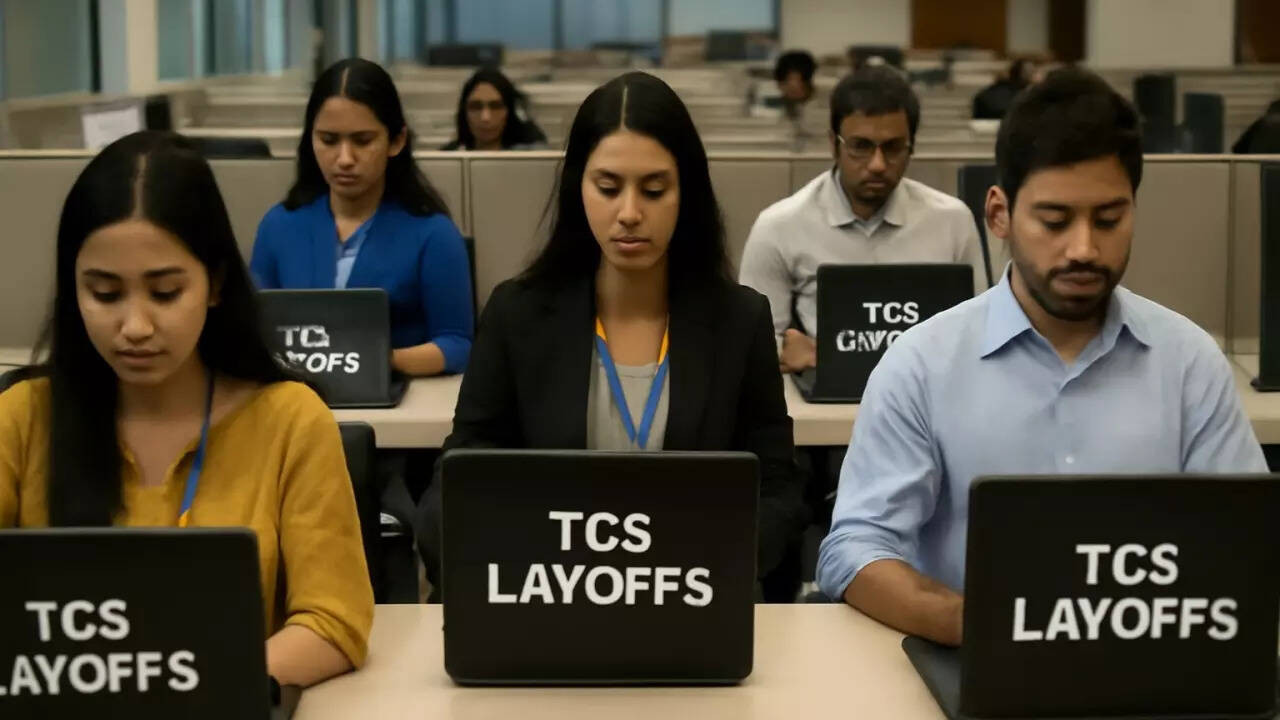TCS layoffs: India’s IT sector is facing turbulence as TCS, the nation’s largest IT firm, announces unprecedented layoffs impacting 2% of its workforce, primarily in middle to senior roles. CEO K Krithivasan cites skill mismatches, not AI, as the reason for this ‘difficult decision.
Navigating the Tech Tide: Understanding Recent Shifts at TCS
The tech world is never static. It’s a dynamic ocean of innovation, constantly shifting, and sometimes, those shifts create waves. Lately, one of those waves has been felt by employees at Tata Consultancy Services (TCS), one of India’s largest IT companies. While whispers of large-scale layoffs have circulated, the picture is more nuanced than simple headcount reduction. So, what’s really going on?
Let’s dive in, leaving the sensationalist headlines behind, and understand the underlying currents.
Not Quite a “Layoff”: Understanding Workforce Optimization
It’s important to understand that TCS isn’t necessarily engaging in a massive “layoff” in the traditional sense, characterized by widespread firings due to financial struggles. Instead, the company is strategically optimizing its workforce. This involves identifying employees whose skill sets don’t align with the company’s future needs, and facilitating their transition to other opportunities.
Think of it like pruning a garden. Sometimes, to ensure the health and growth of the whole, certain branches need to be trimmed. TCS is positioning this move as a way to create a leaner, more agile workforce ready for the challenges and opportunities ahead. It’s less about cutting costs and more about reshaping the workforce for evolving demands.
The Real Reasons Behind Workforce Reshaping
Several factors are converging to create this need for workforce reshaping. Firstly, client needs are changing rapidly. Businesses are increasingly demanding expertise in cutting-edge technologies like cloud computing, data analytics, and, of course, artificial intelligence. This requires TCS to have a workforce proficient in these areas.

Secondly, project requirements are becoming more complex and specialized. Gone are the days of simple, straightforward IT tasks. Today, companies need solutions that are tailored to their specific needs, often requiring expertise in niche areas.
Finally, TCS, like any large organization, needs to manage performance and ensure efficiency. This means that employees who consistently underperform or whose skills are outdated may be asked to move on.
Is AI to Blame?
While artificial intelligence is certainly a driving force in the changing landscape, it’s inaccurate to say that it’s solely responsible for these workforce adjustments. AI is enabling new opportunities and driving demand for different skills, not simply eliminating jobs wholesale. The focus is shifting to individuals who can understand, implement, and manage AI-powered solutions.
TCS is, in fact, heavily investing in training its employees in these emerging technologies. The goal is to upskill the existing workforce and prepare them for the future. This includes providing opportunities for employees to learn about AI, machine learning, and other cutting-edge technologies. This initiative reduces the need to hire from outside and also keeps their workers’ skills fresh and in demand.
A Holistic Approach to Career Transition
TCS emphasizes that it’s committed to supporting employees during this transition. This includes providing severance packages, outplacement services, and opportunities for reskilling. The aim is to help affected employees find new roles, either within TCS or with other organizations.
The company also operates a robust internal job posting system, allowing employees to explore other opportunities within the organization that better align with their skills and interests. This internal mobility helps retain talent and ensures that valuable experience isn’t lost to the company. This internal mobility is key. For more about retaining talent, see this post about company culture.
Looking Ahead: What Does This Mean for the IT Industry?
These shifts at TCS are indicative of broader trends within the Indian IT industry. Companies are facing increasing pressure to adapt to the rapid pace of technological change and to provide clients with innovative solutions. This requires a workforce that is agile, adaptable, and proficient in the latest technologies.
We can expect to see more companies in the IT sector focusing on workforce optimization, upskilling initiatives, and strategic hiring. The future of work in IT is not about replacing humans with machines, but about empowering humans with the tools and skills they need to thrive in an AI-driven world. The organizations that recognize and embrace this shift will be the ones that succeed in the long run.
Ultimately, the story at TCS is one of transformation, not devastation. The company is navigating a complex environment and making strategic decisions to ensure its continued success. While change can be unsettling, it also presents opportunities for growth and innovation.
These changes reflect a wider transformation throughout the tech sector; a necessary shift to remain competitive and relevant in a digital ecosystem that is constantly evolving. The success of this transformation will depend not only on the strategic decisions of companies like TCS but also on the willingness of individuals to embrace lifelong learning and adapt to new challenges.







